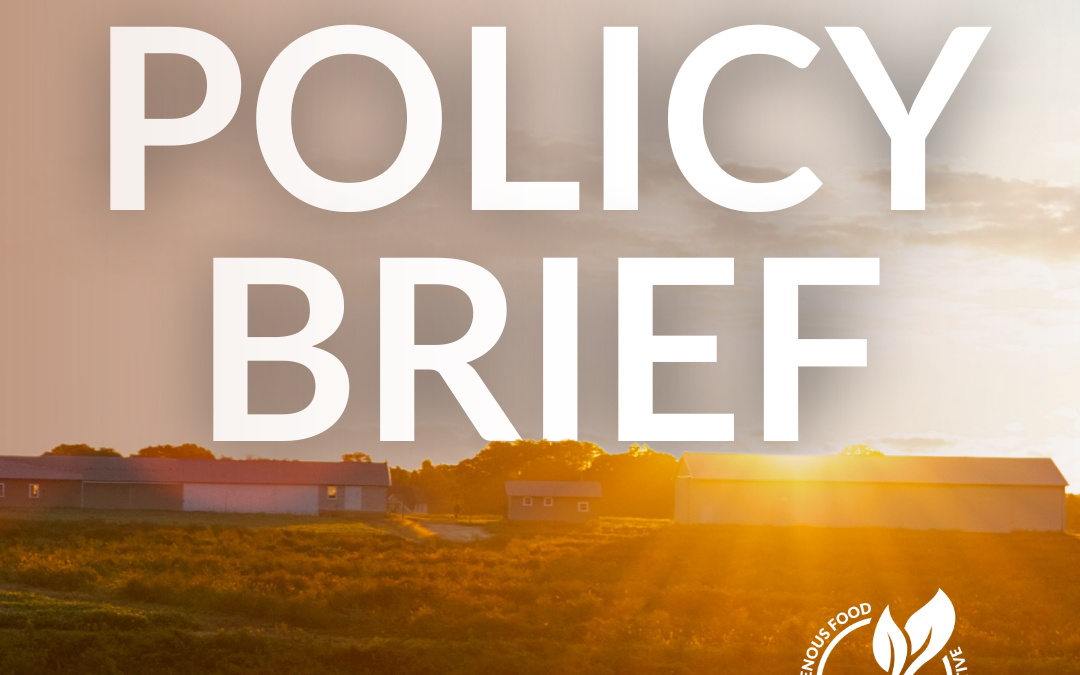Summary
-
There are two Tribal sessions this week, including a Tribal Caucus on April 11, where IFAI will facilitate a discussion on USDA’s permanent implementation of Summer Electronic Benefit Transfer (Summer EBT). Interested participants can still register using the link: bit.ly/SUMEBTIFAI
-
Later this month, USDA will host a series of Tribal Consultations as part of their 2024 Barriers Consultation. Topics include Farming, Ranching, and Conservation (April 24) and Food, Safety, and Trade (April 26).
-
Congress is back this week, and the House Committee on Natural Resources will hold two Tribally focused hearings on April 10 and 11.
-
Nominations for the Invasive Species Advisory Committee remain open until April 29.
-
There are three new Federal Register notices highlighted this week, including a notice from USDA’s Animal and Plant Health Inspection Service on modifications to the APHIS Animal Health Surveillance and Monitoring System (USDA/APHIS-15).
-
Court decisions of note include one from the District Court of Alaska and another from the District Court of Minnesota.
Key Policy-Related Dates
Tribal Consultation/Listening Sessions/Advisory Committee Meetings:
Title of Event: IFAI Tribal Caucus – Summer EBT
About: Last year, USDA published an interim Final Rule re: Establishing the Summer EBT Program and Rural Non-Congregate Option in the Summer Meal Programs. Comments are due by April 29, 2024.
Date: April 11 at 11:00 a.m. CST
Tribal Resources: While there is no official consultation for this proposal, IFAI is facilitating a Tribal Caucus on the Summer EBT Program on April 11 (register here) at 11 a.m. CST to answer questions or provide input to interested Tribes. Caucus registrants will receive the briefing note from IFAI ahead of the event.
Title of Event: Tribal Consultation and Listening Session on Public Access to USDA-Funded Research
About: This Tribal consultation and listening session will discuss changes to the public access requirements for USDA-funded research results. Specifically, topics will include equitable access to the results of USDA-funded research, Indigenous data sovereignty, and potential outreach and training partnerships. Agencies should complete and publish full policy development for plans implementing provisions in Section 3 by December 31, 2024, with an effective date no later than one year after the publication of the agency plan.
Date: April 11 at 1:30 – 3:30 pm ET.
Tribal Resources: A Tribal Caucus will be held hosted by the American Indian Higher Education Consortium (AIHEC) at 12:30 – 1:30 pm on the same day of the consultation.
Title of Event: USDA 2024 Barriers Consultation
About: USDA’s Office of Tribal Relations has scheduled its annual Barriers Consultation during the week of April 22, 2024, from 3-5:30 pm ET each day. Tribal caucuses precede each consultation session from 2-3 pm ET. Dear Tribal Leader letters have been issued, along with proxy letters and instructions on how to register.
Dates:
- Education and Research – April 22 (Register here)
- Forests and Public Lands Management – April 23 (Register here)
- Farming, Ranching, and Conservation – April 24 (Register here)
- Economic Development – April 25 (Register here)
- Food, Safety, and Trade – April 26 (Register here)
Congressional updates
Looking Back:
Congress was not in session last week.
Looking ahead:
Hearing: House Natural Resource Committee April 11, 2024, 2 pm ET
Topic: Promoting Affordable and Reliable Energy Sources for the U.S. Insular Areas | Indian and Insular Affairs Subcommittee
Hearing: House Natural Resource Committee April 10, 2024, 10:15 am ET
Topic: Examining the Impacts of International Cartels Targeting Indian Country | Oversight and Investigations Subcommittee
What is the nomination for? Invasive Species Advisory Committee
Description: The Committee will serve to advise the National Invasive Species Council (NISC) on interdepartmental coordination, planning, and leadership for the Federal Government on the prevention, eradication, and control of invasive species.
Deadline for submission? April 29, 2024
Where can I submit a nomination? Nomination information can be found here.
Regulatory/Rulemaking Actions:
Title: Agency Information Collection Activities re SNAP Demonstration Projects and State Options Report
- USDA’s Food and Nutrition Service (FNS) invites members of the public, including Tribal Governments, to submit comments on collection activities about SNAP Demonstration Projects and SNAP State Options Report.
- Demonstration projects allow State agencies to do approved pilots or experimental projects meant to improve the program.
- FNS also wants to improve the SNAP State Options Report which is published annually.
- Comments are invited on whether FNS’ process of collecting information on SNAP Demonstration Projects and State Options Report is practical, effective, and accurately depicts the amount of work needed to carry out activities.
- Comments must be received on or before June 7, 2024.
Posted: Week of April 8
Title: Submission for OMB Review on Generic Clearance for the Collection of Qualitative Feedback on Agency Service Delivery
- USDA’s Food Safety and Inspection Service (FSIS) is seeking public comments about its process of collecting qualitative feedback from customers and stakeholders.
- Qualitative feedback focuses on the Agency’s primary function of protecting the public by ensuring that meat, poultry, and egg products are safe, wholesome, not adulterated, and correctly labeled and packaged.
- Tribal Governments are among the expected respondents.
- Comments submitted by May 3, 2024, will be considered.
Posted: Week of April 8
Title: Privacy Act of 1974; Notice of a Modified System of Records
- USDA’s Animal and Plant Health Inspection Service (APHIS) is proposing to modify an existing system of records; specifically, the APHIS Animal Health Surveillance and Monitoring System, USDA/APHIS-15.
- APHIS uses this system to monitor animal health data for disease and pest control and surveillance programs.
- The notice outlines several changes to the system of records, including updates to policies and practices for storage as well as retention and disposal of records in the system.
- Comments must be submitted by May 3, 2024.
Posted: Week of April 8
Agency: USDA Food and Nutrition Service (FNS)
Action: Submission for OMB Review on WIC Participant and Program Characteristics 2024 & 2026 Study; Comments requested by April 26, 2024.
Why it matters: This biennial data collection is being conducted to provide FNS information on a census of WIC participants in April of 2024 and 2026. Data used to produce the WIC Participant and Program Characteristic Study (PC) are collected from participants by State agencies and are used to evaluate topics such as the impact of the program, support State agencies, and identify research needs. There are 33 Indian Tribal Organizations (ITOs) that administer WIC.
Posted: Week of April 1
Agency: USDA Food and Nutrition Service (FNS)
Action: Submission for OMB Review on Employment and Training (E&T) Opportunities in The Supplemental Nutrition Assistance Program (SNAP); Comments requested by April 18, 2024.
Why it matters: States are required to provide case management services such as comprehensive intake assessments and individualized service plans. Their purpose (provided virtually, over the phone, in-person, or hybrid) is to guide E&T participants towards appropriate E&T components and activities based on the participant’s needs and interests, to support the participant in the E&T program, and to provide activities and resources that will assist the participant toward self-sufficiency. USDA will use this information to better administer the SNAP E&T Program and to provide improved customer service to SNAP E&T participants.
Posted: Week of March 25.
Court Decisions:
U.S. District Court for the District of Alaska:
The United States of America v. Alaska, No. 1:22-cv-00054-SLG, (Mar. 29, 2024)
The United States’ federal powers under the Alaska National Interest Lands Conservation Act (“ANILCA”) preempted the Alaska Department of Fish & Game’s attempt to regulate subsistence fishing, including Tribes subsistence fishing, on the Kuskokwim River because it is considered a navigable water of the U.S.
U.S. District Court for the District of Minnesota:
Fond Du Lac Band of Lake Superior Chippewa and Grand Portage Band of Lake Superior Chippewa v. EPA, No. 22-1783, (Apr. 2024)
The Bands claimed EPA’s approval of the State of Minnesota’s revised water quality standards that changed the pollutant limits from numeric limits to qualitative, descriptive standards was arbitrary, capricious, and contrary to the Clean Water Act and in violation of the Administrative Procedure Act. In refusing to vacate the EPA’s approval of the revised standards, the court found that the EPA had given a rational basis for its determination that the water quality standards would protect their designated uses, were scientifically sound, and would not threaten the health and survival of aquatic life and wild rice, which are of particular importance to the Bands.

